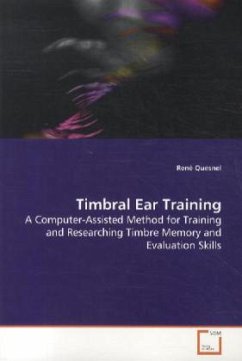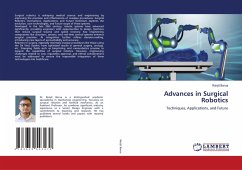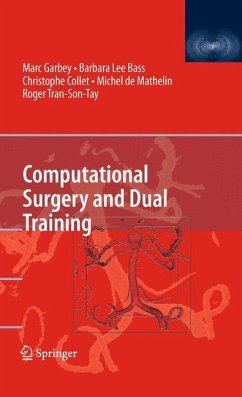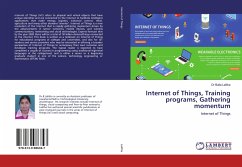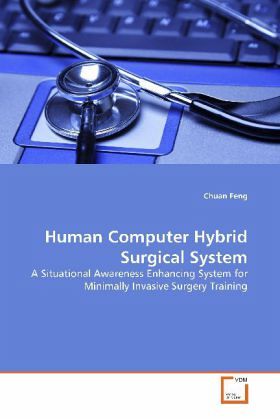
Human Computer Hybrid Surgical System
A Situational Awareness Enhancing System for Minimally Invasive Surgery Training
Versandkostenfrei!
Versandfertig in 6-10 Tagen
32,99 €
inkl. MwSt.

PAYBACK Punkte
16 °P sammeln!
Minimally Invasive Surgery (MIS) is a surgicaltechnique involving small incisions performed by anendoscope and several long, thin instruments. MISminimizes complications and speeds up recovery timecompared to the traditional surgery. Unfortunately,from a surgeon s perspective, MIS is much morechallenging than conventional open surgery because ofthe limited vision and sensing feedbacks. In the last decade, we have witnessed dramaticincreases in performance of computerized assistedsystem, achieved through increasing computationalcapabilities and advances in sensor designs. Theobjective of this r...
Minimally Invasive Surgery (MIS) is a surgical
technique involving small incisions performed by an
endoscope and several long, thin instruments. MIS
minimizes complications and speeds up recovery time
compared to the traditional surgery. Unfortunately,
from a surgeon s perspective, MIS is much more
challenging than conventional open surgery because of
the limited vision and sensing feedbacks.
In the last decade, we have witnessed dramatic
increases in performance of computerized assisted
system, achieved through increasing computational
capabilities and advances in sensor designs. The
objective of this research is to design and realize a
novel prototype that advances the state of the art in
surgical training, assessment, and guidance for MIS.
The proposed Situational Awareness Enhancing System
(SAES) uses a unified framework incorporating
perception, comprehension, and projection software
modules that provide feedback during the exercises
and enable evaluation of the training procedure. The
low cost solution would permit our system to not only
measure a trainee s progress in acquiring psychomotor
skills, but also to evaluate instrument effectiveness
in reducing error.
technique involving small incisions performed by an
endoscope and several long, thin instruments. MIS
minimizes complications and speeds up recovery time
compared to the traditional surgery. Unfortunately,
from a surgeon s perspective, MIS is much more
challenging than conventional open surgery because of
the limited vision and sensing feedbacks.
In the last decade, we have witnessed dramatic
increases in performance of computerized assisted
system, achieved through increasing computational
capabilities and advances in sensor designs. The
objective of this research is to design and realize a
novel prototype that advances the state of the art in
surgical training, assessment, and guidance for MIS.
The proposed Situational Awareness Enhancing System
(SAES) uses a unified framework incorporating
perception, comprehension, and projection software
modules that provide feedback during the exercises
and enable evaluation of the training procedure. The
low cost solution would permit our system to not only
measure a trainee s progress in acquiring psychomotor
skills, but also to evaluate instrument effectiveness
in reducing error.




